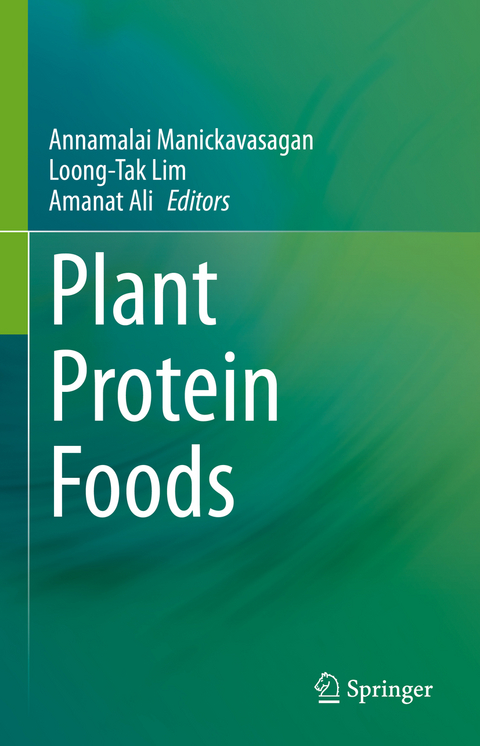
Plant Protein Foods
Springer International Publishing (Verlag)
978-3-030-91205-5 (ISBN)
As consumers are increasingly aware of personal health and environmental impact of food production, the demand for plant protein foods is increasing globally. This trend has prompted several large-scale collaborative research projects on plant-based protein products supported by the industry and governmental agencies. Several established multinational meat companies have started adding plant-protein product lines to meet the current demand.
This book presents thefirst comprehensive compilation of literature on plant-based protein foods. Chapters cover protein extraction technologies from plants, comparison of amino acid profiles of plant- and animal-based proteins, approaches to product development for plant-based protein products, health benefits of plant-based protein foods, market opportunities, and future challenges. Plant Protein Foods is an essential reference for consumers, students, researchers, food manufacturers and other stakeholders interested in this domain.
Annamalai Manickavasagan is an Associate Professor of Food Processing and Product Development at the University of Guelph in Guelph, Canada.
Loong-Tak Lim is a Professor of Food Packaging and Materials Science at the University of Guelph.
Amanat Ali is a Visiting Research Professor of Human Nutrition at the University of Guelph.
1. High protein foods: A comparison of animal origin vs plant origin foods.- 2. An overview of plant-based protein rich products.- 3. Processing technologies to produce plant protein concentrates and isolates.- 4. Product development technologies for plant protein-based foods.- 5. Enrichment and fortification of traditional foods with plant protein isolates.- 6. Plant-based meat analogues and modified meat extenders.- 7. Fermented plant protein products.- 8. Extruded protein films / non-textured protein products.- 9. Plant protein based drinks / beverages.- 10. Sensory and physical properties of plant protein foods.- 11. Amino acid profile and bioavailability of plant-based protein rich products.- 12. Nutritional quality, health implications of plant-based protein rich foods and/or Plant protein foods in the prevention and management of non-communicable diseases.- 13. Anti-nutritional factors and biologicalconstraints in the use of plant protein isolates and concentrates.- 14. Safety and regulation requirements for plant-based protein rich foods.- 15. Meat replacers and meal plans based on plant protein isolates for human consumption.- 16. Global trends in the use of plant protein foods: Awareness, availability and consumption.- 17. Marketing opportunities for plant-based protein products.
| Erscheinungsdatum | 30.03.2022 |
|---|---|
| Zusatzinfo | XIII, 519 p. 51 illus., 30 illus. in color. |
| Verlagsort | Cham |
| Sprache | englisch |
| Maße | 155 x 235 mm |
| Gewicht | 961 g |
| Themenwelt | Naturwissenschaften ► Biologie ► Botanik |
| Technik ► Lebensmitteltechnologie | |
| Schlagworte | Amino Acids • Meal alternatives • Plant-based Meat • Plant protein isolate • sustainable protein |
| ISBN-10 | 3-030-91205-1 / 3030912051 |
| ISBN-13 | 978-3-030-91205-5 / 9783030912055 |
| Zustand | Neuware |
| Informationen gemäß Produktsicherheitsverordnung (GPSR) | |
| Haben Sie eine Frage zum Produkt? |
aus dem Bereich


